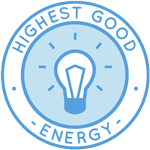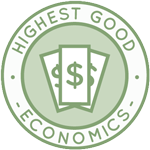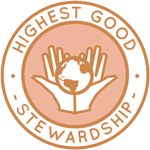Open Source Eco-village Construction – One Community Weekly Progress Update #457
Let’s open source eco-village construction. One Community is supporting this with open source and free-shared eco-community components covering food, energy, housing, education, for-profit and non-profit economic design, social architecture, fulfilled living, global stewardship practices, and more.
- Here’s our project overview
- Here’s our world-change methodology
- Here’s how this becomes self-replicating
- Here’s how we are open source and free-sharing all the do-it-yourself designs

OUR MAIN OPEN SOURCE HUBS
Click on each icon to be taken to the corresponding Highest Good hub page.
One Community’s physical location will forward this movement as the first of many self-replicating teacher/demonstration communities, villages, and cities to be built around the world. This is the December 26th, 2021 edition (#457) of our weekly progress update detailing our team’s development and accomplishments:
Open Source Eco-village Construction
One Community Progress Update #457
DONATE | COLLABORATE | HELP WITH LARGE-SCALE FUNDING
CLICK HERE IF YOU’D LIKE TO RECEIVE AN EMAIL EACH WEEK WHEN WE RELEASE A NEW UPDATE
YOU CAN ALSO JOIN US THROUGH SOCIAL MEDIA
ONE COMMUNITY WEEKLY UPDATE DETAILS
HIGHEST GOOD HOUSING PROGRESS
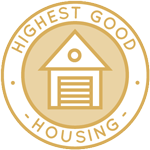 One Community is developing open source eco-village construction plans through Highest Good housing that is artistic and beautiful, more affordable, more space efficient, lasts longer, DIY buildable, and constructed with healthy and sustainable materials:
One Community is developing open source eco-village construction plans through Highest Good housing that is artistic and beautiful, more affordable, more space efficient, lasts longer, DIY buildable, and constructed with healthy and sustainable materials:
- Learn about: Our Upcoming Crowdfunding Campaign
- Learn about the different village models: 7 Sustainable Village Models
- Visit the open source portals for the first two: Earthbag Village OS Hub | Straw Bale Village OS Hub
This week Dean Scholz (Architectural Designer) continued helping with the Earthbag Village (Pod 1) 4-dome cluster designs, contributing to open source eco-village construction. This was week #233 of Dean’s work and the focus was 6 more hours or lighting testing and adjustments, re-rendering to check the results, then trying other strategies. The process is ongoing. This work helps One Community’s mission of open source eco-village construction and reinforces our commitment to a better living quality for all people.
Jose Luis Flores (Mechanical Engineer) completed his 75th week helping finish the Net-zero Bathroom component of the Earthbag Village. This week Jose Luis began creating a section in the Net-Zero Bathroom instructions/tutorial for the construction of the rain barrel support structure. He began by researching various ways of connecting wooden beams and analyzing the connection types in the rendering of the structure to determine the necessary supports. The process is ongoing. This work helps One Community’s mission of open source eco-village construction and reinforces our commitment to a better living quality for all people.
He then searched for the determined support brackets to hold the beams in place and added them to the material list. Jose Luis rendered the support brackets on Solidworks to illustrate the instructions the user must follow to build the structure. The instructions will include these illustrations along with step-by-step instructions. The pictures below show some of this work.
Stacey Maillet (Graphic Designer) completed her 58th week working on the final edits and revisions to the Murphy bed instructions, contributing to open source eco-village construction. This week Stacey updated more pages in the instructions related to aesthetics and the layout, confusing graphics and inconsistent icons and drawings. This work helps One Community’s mission of open source eco-village construction and reinforces our commitment to a better living quality for all people. Screenshots below are related to this latest progress.
Becky Xin (Volunteer Web Editor) completed her 8th week helping with web design, now focused on the Sustainable Roadways, Walkways, and Landscaping tutorial, contributing to open source eco-village construction. This week, Becky focused on revising the process of the photos on the current webpage she is working on. She has renamed, resized, and compressed the photos again. Becky is currently reentering them in the webpage, and is going to change the SEO in order to connect more long-string phrases. Pictures below are related to this work.
Karla Ulloa (Front end Developer) completed her 5th week helping with website design. This week Karla worked on getting as many items on the Tools and Equipment tables as possible, contributing to open source eco-village construction. She focused on correct table placement (tools, equipment or materials) as well as providing correct links. Karla also made sure to add them each to the correct dropbox folder. She was able to finish the google doc for tools and equipment and is now working on finishing items on the materials google doc. This work helps One Community’s mission of open source eco-village construction and reinforces our commitment to a better living quality for all people. See below for pictures related to this work.
DUPLICABLE CITY CENTER PROGRESS
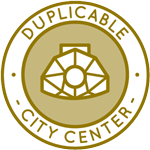 One Community is developing open source eco-village construction plans through a Duplicable and Sustainable City Center that is LEED Platinum certified/Sustainable, can feed 200 people at a time, provide laundry for over 300 people, is beautiful, spacious, and saves resources, money, and space:
One Community is developing open source eco-village construction plans through a Duplicable and Sustainable City Center that is LEED Platinum certified/Sustainable, can feed 200 people at a time, provide laundry for over 300 people, is beautiful, spacious, and saves resources, money, and space:
- Learn about this building and it’s function: Duplicable City Center Open Source Hub
This week the core team completed the final review of the Grid-tie Remote Energy Infrastructure Setup and Construction How-to Tutorial within the WordPress web editor and added comments on the Google Document, contributing to open source eco-village construction. This was to provide a technical review of the content and ensure sufficient and clear enough details were present for anyone to understand the processes outlined there. This work helps One Community’s mission of open source eco-village construction and reinforces our commitment to a better living quality for all people. Pictures below are related to this.

Luis Manuel Dominguez (Research Engineer) completed his 32nd week helping with research related to the City Center Eco-spa designs, contributing to open source eco-village construction. This week Luis was able to select a modular control panel system for the City Center spa design. This system is suited to wire all of the previously selected components and is compatible with the built in software. The software will allow the user to program and control the system via wireless connection through smart devices or ethernet connection. This work helps One Community’s mission of open source eco-village construction and reinforces our commitment to a better living quality for all people.
The last thing Luis completed this week was organizing the file structure of the selected components. This included organizing the manuals and spec sheets into an easily accessible folder for convenient access. Pictures below are related to this work.
Frank Roland Vilcapaza Diaz (Mechanical Engineer) completed his 25th week helping, now with content related to the Solar Microgrid sizing, contributing to open source eco-village construction. This week Frank worked on finishing up the tutorial for the SAM program. He worked on detailing the different steps on the installation and the different options for the models that the program works with. Moreover, he started reading on the installation of the HVAC systems and the planning to do so. The pictures below relate to this.
Venus Abdollahi (Architectural Designer) completed her 23rd week helping finish the Duplicable City Center designs, contributing to open source eco-village construction. This week, Venus completed section B-B and started to complete section C-C. She added columns and furniture according to the new main-floor plans and basement plan and corrected some parts. Venus also had a meeting about the roof with her supervisor for more options and to discuss what she needs to do next. See pictures below.
Xuanji Tang (Architectural Designer) completed her 16th week working on Duplicable City Center architectural review and updates related to the structural code, contributing to open source eco-village construction. This week she was working on updating the tables in the “City Center Project Specification and Design Basis” doc, according to the new floor plan. Xuanji also did some research for the newly proposed roof plan with Venus. Pictures below are related to this work.
Huiya Yang (Volunteer Architectural Designer) completed her 13th week working on the Duplicable City Center architectural review and updates related to the structural code. This week Huiya completed her 12th week working on Duplicable City Center architectural SketchUp model’s updates. She started to work on adding the furniture of the first-floor Living Dome according to the latest CAD drawing and original SU model. This work helps One Community’s mission of open source eco-village construction and reinforces our commitment to a better living quality for all people.
Huiya found that there is an extruded wall in Room 8 that looks strange, so she will discuss it with Xuanji to see if there is any other way to fix that. She also found that some furniture needs to be adjusted, such as removing a bedside table so that the closet door can be opened, or a long closet will block the entrance to the room a bit. Huiya will discuss these problem with Xuanji and Yuxi in next week’s meeting. Pictures of some of this work are below.
Yuxi Lu (Architectural Designer) also completed her 11th week working on the Duplicable City Center architectural review and updates related to the structural code, contributing to open source eco-village construction. This week Yuxi went through last week’s modeling problem discussion with the team. She worked on resizing the Dining dome custom tables in SketchUp, making sure the resized furniture still followed the required width and length, as well as number of seats.
The second floor wall of the Dining Dome was trimmed following the shell’s shape, and construction of the north staircase was initiated in the model up to the third floor. Pictures of some of this work are below.
And George Koshy (Design Engineer) completed his 10th week working on the Duplicable City Center connectors we’ll use to build the domes, contributing to open source eco-village construction. He completed and documented all the work along with results and inferences for review, and uploaded in the drive for peer review. George also looked into various ways to bend steel plates. The amount of force required to bend a quarter-inch steel plate depends on the length of the bent. Preliminary research shows that bending requires a hydraulic press but other options are being explored. The pictures below relate to this work.
Yuran Qin (Volunteer Web Editor) also completed her 7th week helping with web design. This week Yuran began creating the “Raising Sheep – Ethical, Humane, & Conscientious Sheep Stewardship” page on the staging page behind the scenes, contributing to open source eco-village construction. She added the titles to the Table of Contents and added the anchors for the titles. Yuran also added the YouTube videos to the page, adjusted the formats, and began adding the main content to the sections. Pictures below show some of this work-in-progress.
Raj Patel (Mechanical Engineer) also joined the team and completed his 1st week helping with the Duplicable City Center hub connectors design and testing. This week Raj completed his orientation and general onboarding and specific onboarding checklist. He also read the hub connector analysis report and the peng_Z_Sourish.pdf file to get updated with the work that has been done so far on the project and ran a simulation study on the V bracket file to see how it will react.
HIGHEST GOOD FOOD PROGRESS
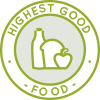 One Community is developing open source eco-village construction plans through Highest Good food that is more diverse, more nutritious, locally grown and sustainable, and part of our open source botanical garden model to support and share bio-diversity:
One Community is developing open source eco-village construction plans through Highest Good food that is more diverse, more nutritious, locally grown and sustainable, and part of our open source botanical garden model to support and share bio-diversity:
- Learn about the structures: Hoop House Hub | Aquapini & Walipini Open Source Hub
- See what we’ll be growing: Gardens & Hoop Houses | Large-scale Structures | Food Forest | TA
This week the core team continued the comprehensive review and final edits and additions to our Sheep research. This week we completed the rough draft review and more research. We researched more on guardian animals, Centaurea maculosa, food amounts for sheep, and finalized intros for the vaccination section and non-religious stance of OC. All that remains are updated fencing plans, more research on why sheep and goats should be kept separate, grammar, sentence structure, and punctuation review. See below for the pictures related to this work.
The core team additionally worked on updating the Chicken Coop Building Instruction document. We corrected images and text related to the adjusted height of the chicken coop entry door, finished updating the section for the sliding chicken door installation on the west side of the coop, and started to work on a section of the document related to the building of the shutters for the ventilation openings. This work helps One Community’s mission of open source eco-village construction and reinforces our commitment to a better living quality for all people. Pictures below are related to this work.
Qiuheng Xu (Landscape Designer) completed her 64th week volunteering, now helping with the Aquapini & Walipini external landscaping details. This week Qiuheng spent time fixing the people’s movement issue in the Lumion video rendering. She added movements to figures walking in place. The video clips were also adjusted to change how we fly into the structure and another version was tested to show the overall view first, then show the close walkthrough. Pictures below are related to this.
Daniela Andrea Parada (Civil Engineering Student) completed her 26th week helping with the Aquapini & Walipini and Sustainable Roadways, Walkways, and Landscaping tutorial development. This week Daniela started by downloading a new CAD version of the Aquapinis and Walipinis. Once downloaded, Daniela labeled each structure and avoided covering any values that showed which plant types were used. Daniela then included these in the report, but went back into CAD to correct minor details for the aesthetics.
She reviewed all images within the Aquapini and Walipini report to make sure all were updated with the new graphics and responded to various comments in order to receive feedback. Daniela wrote a small narrative outlining the details of the plant types and internal environments for each structure. edited the paragraph she had previously written, addressed new comments from the Roadways report, and adjusted the calculations to show the correct road types. This ended up altering the cost analysis leading to a new unlimited cost of $8 million and a new minimized cost of $4 million. This work helps One Community’s mission of open source eco-village construction and reinforces our commitment to a better living quality for all people. Pictures below are related to this work.
And Brian Storz (Culinary Project Manager) completed his 14th week helping lead the completion of the Transition Food Self-sufficiency Plan, Transition Kitchen designs, Food Procurement and Storage plan, and related menu and meal plans. This week Brian worked on the cost analysis and updating the equipment selection for the Transition Kitchen. In Brian’s expert opinion we needed to add an oven, freezer, and a refrigeration unit to the kitchen. He also worked on adding the addition equipment and utensils that would be required to make the kitchen and dining room completely ready to serve 50 people three times a day, and worked closely with Anna on developing her recipes. This work helps One Community’s mission of open source eco-village construction and reinforces our commitment to a better living quality for all people. Below are some images related to this.
Jennifer Lee (Graphic Designer) also completed her 3rd week working on the open source Permaculture Design staging page. This week Jennifer worked on adding the remaining images from the “Sun Sector Example” section and added new text and imagery from the “Step C: Components” sections. Jennifer optimized images, linked resources and fixed any existing formatting errors. She also sought out suitable replacements for any links that were broken or missing. This work helps One Community’s mission of open source eco-village construction and reinforces our commitment to a better living quality for all people. See below for pictures related to this work.
Anna Cheal (Culinary Nutritionist) completed her 3rd week helping with the completion of the Transition Food Self-sufficiency Plan and related menu and meal plans. This week Anna created seven new recipes: Spicy Sweet Potato Veggie Burrito, Tuscan White Bean Pasta, Pork Gumbo, Moroccan Sweet Potato Stew, Drunken Noodles, Coconut Curried Golden Lentils, and Golden Milk Smoothie. Many of these recipes are still in the review process. Anna is in the early stages of developing the Blueberry Peanut Butter Smoothie. This work helps One Community’s mission of open source eco-village construction and reinforces our commitment to a better living quality for all people. The pictures below relate to this work.
HIGHEST GOOD EDUCATION PROGRESS
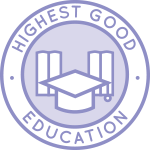 One Community is developing open source eco-village construction plans through Highest Good education that is for all ages, applicable in any environment, adaptable to individual needs, far exceeds traditional education standards, and more fun for both the teachers and the students. This component of One Community is about 95% complete with only the Open Source School Licensing and Ultimate Classroom construction and assembly details remaining to be finished. We’ll report on the final two elements to be finished as we develop them.
One Community is developing open source eco-village construction plans through Highest Good education that is for all ages, applicable in any environment, adaptable to individual needs, far exceeds traditional education standards, and more fun for both the teachers and the students. This component of One Community is about 95% complete with only the Open Source School Licensing and Ultimate Classroom construction and assembly details remaining to be finished. We’ll report on the final two elements to be finished as we develop them.
With over 8 years of work invested in the process, the sections below are all complete until we move onto the property and continue the development and open sourcing process with teachers and students – a development process that is built directly into the structure of the education program and everything else we’re creating too:
- Program Overview: Education Open Source Hub
- How the components work together: How to use the Education for Life Program
- Lesson Plans for Life – Lesson Plans How-to
- Foundations of Outstanding Leaders, Teachers, and Communicators
- Curriculum for Life
- Teaching Strategies for Life
- Learning Tools and Toys for Life
- Evaluation and Evolution
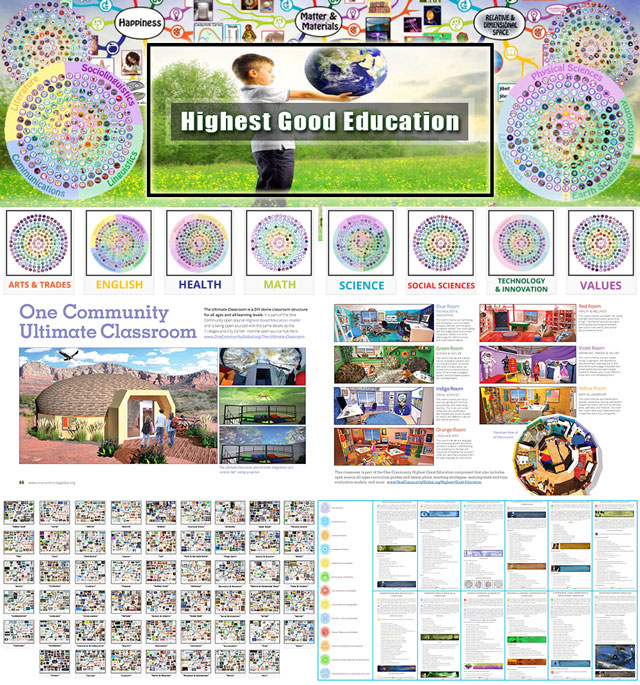
Highest Good Education: All Subjects | All Learning Levels | Any Age – Click image for the open source hub
HIGHEST GOOD SOCIETY PROGRESS
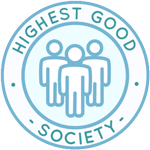 One Community is developing open source eco-village construction plans through a Highest Good society approach to living that is founded on fulfilled living, the study of meeting human needs, Community, and making a difference in the world:
One Community is developing open source eco-village construction plans through a Highest Good society approach to living that is founded on fulfilled living, the study of meeting human needs, Community, and making a difference in the world:
- Read the Highest Good society overview: Highest Good Society
- Learn about the model for fulfilled living and sharing: A Day in the Life
- Learn about the 4 economic models: RBE | For-profit | Non-profit | Entrepreneurship
- Learn about our open source community collaboration and management software: The Highest Good Network
This week the core team completed 28 hours managing One Community volunteer-work review not included above, emails, social media accounts, web development, new bug identification and bug fix integration for the Highest Good Network software, and interviewing and getting set up new volunteer team members. This work helps One Community’s mission of open source eco-village construction and reinforces our commitment to a better living quality for all people. Pictures below show some of this.
Aleksandra “Alex” Gorkovenko (Graphic Designer) also completed her 19th week working on images for our open source social media strategy. Alex focused on making new icons using Illustrator and Procreate. She created 4 icons that were inspired by images from previous icons, concentrating on color contrast and composition. This work helps One Community’s mission of open source eco-village construction and reinforces our commitment to a better living quality for all people. Pictures below are related to this work.
Navya Madiraju (React.js/MongoDB Full Stack Developer) completed her 7th week helping with the Highest Good Network software. This week Navya tested and finished fixing the badges-function bugs for deleting a badge from a person’s Profile, hitting “save” not closing the window, and inability to edit/choose featured badges. After Navya raised that PR, she also checked and approved PR #330 Bug fix so that the Firefox and Safari browsers would show the Team Member addition fields correctly, and then did a GitHub rebase and raised as new PR for #337 (Dev new max personal record badge). This work helps One Community’s mission of open source eco-village construction and reinforces our commitment to a better living quality for all people. Pictures below are related to this work.
And, last but not least, Jin Hua (Web Marketer and Graphic Designer) helped us create and update our Adwords campaigns for promoting the Best Small and Large-scale Community Polystyrene & Styrofoam Recycling, Repurposing, and Reuse page. This work helps One Community’s mission of open source eco-village construction and reinforces our commitment to a better living quality for all people. See pics below related to this.
AND WE PRODUCED THIS WEEKLY UPDATES BLOG – CLICK HERE TO SUBSCRIBE
FOLLOW ONE COMMUNITY’S PROGRESS (click icons for our pages)
INVESTOR PAGES
GET INVOLVED
DONATE | WAYS ANYONE CAN HELP | MEMBERSHIP
CLICK HERE FOR ALL PAST UPDATES
 One Community
One Community